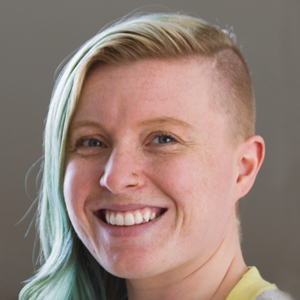Exiting the hobbit hole
I am a pretty big “Lord of the Rings” fan. I read the books for the first time when I was in high school and can still remember sitting in a bedroom in my parents’ house, looking out across the front yard, and imagining a vast landscape of trees, mountains and hobbits to rescue.
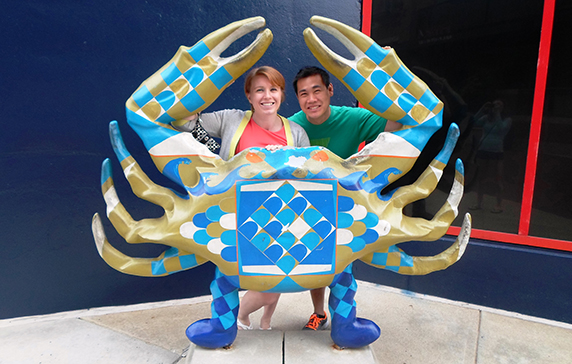 The author and her husband, David Yanagisawa, in Baltimore.
The author and her husband, David Yanagisawa, in Baltimore.
What I really saw out that bedroom window was the same thing that unfolded every day: my neighbors' house across the street, their trampoline springing as the kids bounced around. I saw my health teacher running down the street and barely registered the all-too-familiar warning barks of my dog as she passed by our front door. Indeed, it would be hard to picture any life more removed from the tumultuous scenes playing out in the pages of those fantastical books than mine.
I grew up in rural Minnesota. The friends and family that were important to me were all within driving distance, and I easily got from my home to town without needing to know a single street name. Nearly all of my life had been spent within a two- or three-hour radius of my parents’ house. At the time, I felt little need to venture farther.
My hometown was comfortable. It was safe. It was all I knew. It was my hobbit hole.
And then came my senior year of high school. There were no colleges in the immediate area, but I applied to the schools that were closest, never even bothering to look outside the state. I ended up at a small private college in Minneapolis, about an hour away from home. As I packed my things and shopped for decorations for my new place, I felt excited. I was finally about to step out my front door and embark on an adventure of my own.
I remember my family moving me into my dorm. My younger sister helping to cart the boxes of belongings from the only home we’d ever known to this new, foreign place. My mom meticulously helping me organize my desk while my dad hung my pictures on my new wall. Everyone gathered before my door to say their goodbyes. Rolling my eyes at the tears running down my mom’s face, I assured them all I’d be fine, hugged them and sent them on their way.
But once my classes started my feelings of excitement began giving way to doubt. Some of the people I was meeting disagreed with what I thought, and I found myself having to offer reasons for my beliefs — something, it turns out, I did very badly. I had never before had my beliefs challenged and was at a loss as to how to defend them. I began to question myself deeply. Did I even have reasons for what I thought?
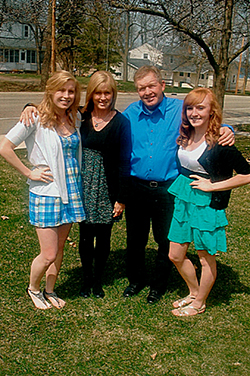 The author back in her hometown on her grandparents’ lawn with mother Deb Woelfel, father Bob Woelfel, and sister Jenna Woelfel.
The author back in her hometown on her grandparents’ lawn with mother Deb Woelfel, father Bob Woelfel, and sister Jenna Woelfel.
Over the next three months, I spent most of my time isolated in my dorm room. When I was in class, I would scan the hundreds of unfamiliar faces and feel my heart sink. I didn’t like the school. No, I hated it. I cherished Fridays, when my dad would pick me up to go home for the weekend. This place wasn’t my home, and it would never be my home.
I was miserable. I wanted nothing more than to pack up my belongings and go back to the place where everything was how I expected and every shared idea aligned with my way of thinking.
But I didn’t do it. Somehow, I made it through that first semester. And then you know what? It got better. I made new friends and went to their rooms after classes instead of locking myself in my own. I chose to stay in Minneapolis on weekends instead of returning to my parents’ house. I met people from various backgrounds who actually forced me to think about things in a different light. I began to stop seeing different opinions as threats. I slowly came to understand the type of truth these interactions could provide.
I lived in Minneapolis for two years after I graduated, and I loved it. The diversity of people and ideas and options no longer felt like a threat to me. But even as I grew more comfortable in this new life, I knew I wanted to do something other than the technician job that I’d landed. I applied and was accepted into graduate school at Johns Hopkins. I packed up all my belongings again — this time one husband, one dog and one cat heavier — and drove across the country to my new home of Baltimore.
But when I arrived, I felt myself fall into that all-too-familiar mindset. This place was so different from anything I had experienced. The people thought and acted differently, and the academic environment differed from that of my small college. I thought I had made such progress in Minneapolis, but I panicked again. I felt myself retracing my steps, backing away into the comfort of my hobbit hole.
The panic turned out to be lighter this time and my discomfort more transient. Instead of hiding away, I felt myself undergoing another personal transformation. These new differences weren’t a threat to me; they were an opportunity. Another chance to push myself and challenge my beliefs and shape myself into a more informed person. An opportunity to respond, not with defensiveness and anger, but with empathy and a desire to understand.
Over my past three years in Baltimore, I have learned so many important things about the people around me and, in doing so, about myself. And it’s all because I engaged in the very anxiety-inducing interactions that once were so threatening to me.
Differences can be scary. They threaten what we think we know. But learning from others who think differently from you is not only a useful path to take; it’s a necessary one. Too often we are allowed to remain safe in our own hobbit hole, surrounded only by our own beliefs. My advice? Break out of that place, step out your front door onto a new path and don’t ever stop walking. Maybe I’ll see you out there.
Enjoy reading ASBMB Today?
Become a member to receive the print edition monthly and the digital edition weekly.
Learn moreGet the latest from ASBMB Today
Enter your email address, and we’ll send you a weekly email with recent articles, interviews and more.
Latest in Opinions
Opinions highlights or most popular articles
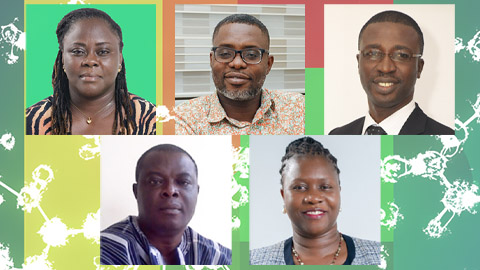
Getting to know scientists half a world away
In a program at Wellesley College, students interview and write about researchers at a university in Ghana.

Let’s make ASBMB awardees look more like BMB scientists
Think about nominating someone outside your immediate network.
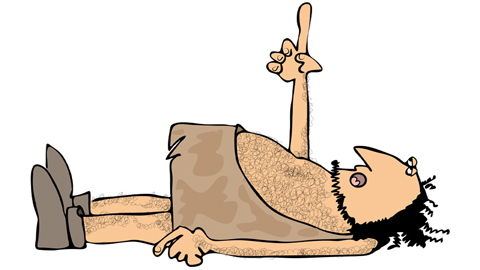
A paleolithic peer review
You might think review panels have only been around for the last century or so. You would be mistaken.

Early COVID-19 research is riddled with poor methods and low-quality results
The pandemic worsened, but didn’t create, this problem for science.

So, you went to a conference. Now what?
Once you return to normal lab life, how can you make use of everything you learned?
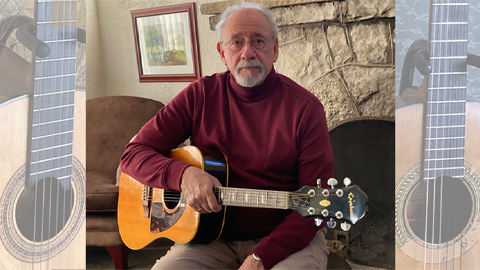
My guitar companion
A scientist takes a musical journey through time and around the world.

